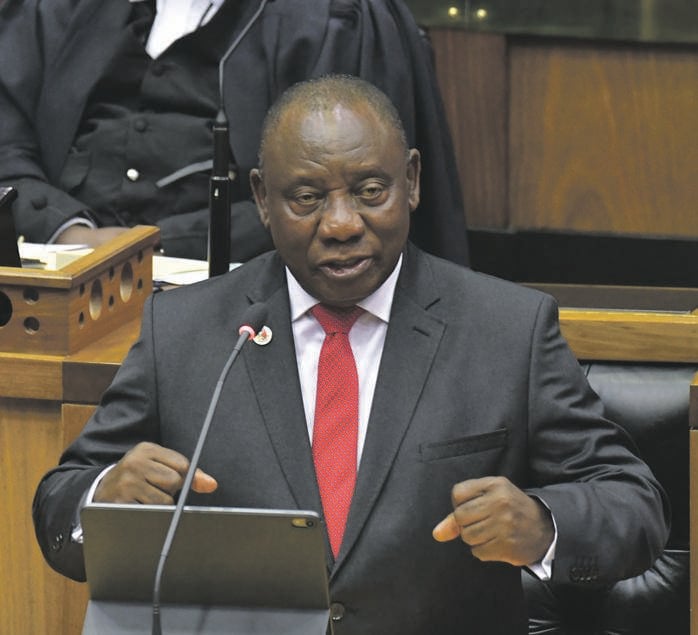
President Cyril Ramaphosa has launched a new district-based model of development and service delivery in South Africa.
The district development model is seen as a key intervention for service delivery.
It is a new integrated planning model for cooperative governance that seeks to be a new integrated, district-based, service delivery approach aimed at fast-tracking service delivery and ensure that municipalities are adequately supported and resourced to carry out their mandate.
“The district development model aims to accelerate, align and integrate service delivery under a single development plan per district or metro that is developed jointly by national, provincial and local government as well as business, labour and community in each district,” the presidency said in October.
“Each district plan ensures that national priorities such as economic growth and employment; improvements to living conditions; the fight against crime and corruption and better education outcomes are attended to in the locality concerned. This development approach ensures that planning and spending across the three spheres of government is integrated and aligned and that each district or metro plan is developed with the interests and input of communities taken into account upfront.”
This plan gives validates local government as an epicentre for service delivery and development. It puts the existing 44 district and eight metros at the centre stage of service delivery and development initiatives.
If this is done well, and with a fair commitment to it – unlike the typical South African policies of consistently trying something new without effectively putting it to the test – this model has the potential to yield tangible results.
There is a popular phrase in South Africa and African Union that South Africa and the continent prides itself on having great policies but the issue is implementation and monitoring and evaluation of these supposedly great policies.
If this model is to work, there is a huge gap in local government with regards to monitoring and evaluation that needs to be closed.
The local government sector has been battling with a rapid and effective response. Monitoring and evaluation can make a positive impact. Every case of progress or lack thereof needs to be treated individually and based on its own dynamics and environment.
With this kind of effective monitoring and evaluation, South Africa will be able to respond well to issues affecting communities – from infrastructure rollout to general service delivery that responds directly to the needs and aspirations of the people affected.
Given the slow pace of development and economic growth this model presents South Africans with a deliberate and focused effort to work with the challenges facing us; bearing in mind their context, scale and difference but ultimately contributing beautifully to the nation’s development.
This model makes sense precisely because local government is the critical component to render services to communities.
Civil servants
But this model requires skilled and dedicated civil servants at local municipalities.
Local municipalities will need to recruit the best people that will do their best to serve their communities; failure to this would mean that the district model is doomed to fail.
Importantly, the district model provides South Africans with the ability to do something about spatial planning.
It offers an platform to look at both rural and urban areas and how best government can respond to challenges faced in these different environment.
The biggest advantage for this model is that it puts all the desires of government to be people- and community-centred into perspective.
Whether one talks about the National Health Insurance, small and medium enterprises or centres of specialisation in TVET colleges, people are placed at the centre of this model.
The district model will help South Africans to diagnose their challenges themselves and thereby provide better solutions.
If local government is being driven by competent men and women, the district development model possesses the qualities to be a game changer in South African public policy, development and service delivery.
• Yamkela Fanisi is a postgraduate student in the fields of public and development management, public policy and governance




 Publications
Publications
 Partners
Partners








